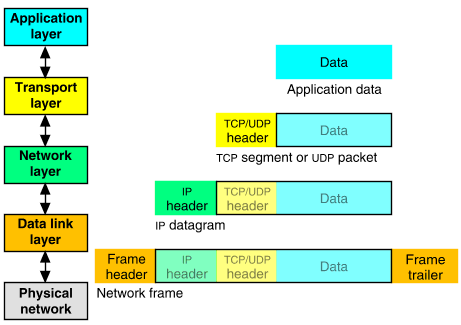/**
* register_netdev - register a network device
* @dev: device to register
*
* Take a completed network device structure and add it to the kernel
* interfaces. A %NETDEV_REGISTER message is sent to the netdev notifier
* chain. 0 is returned on success. A negative errno code is returned
* on a failure to set up the device, or if the name is a duplicate.
*
* This is a wrapper around register_netdevice that takes the rtnl semaphore
* and expands the device name if you passed a format string to
* alloc_netdev.
*/
int register_netdev(struct net_device *dev);
/**
* unregister_netdev - remove device from the kernel
* @dev: device
*
* This function shuts down a device interface and removes it
* from the kernel tables.
*
* This is just a wrapper for unregister_netdevice that takes
* the rtnl semaphore. In general you want to use this and not
* unregister_netdevice.
*/
void unregister_netdev(struct net_device *dev);
struct net_device *alloc_netdev(sizeof_priv, name, setup);
void free_netdev(struct net_device *dev);
struct net_device *alloc_etherdev(sizeof_priv); /* Ethernet device */
struct net_device *alloc_ltalkdev(int sizeof_priv); /* localtalk device */
struct net_device *alloc_fcdev(int sizeof_priv); /* Fiber channel device */
struct net_device *alloc_fddidev(int sizeof_priv); /* FDDI device */
struct my_data *data = (struct my_data *)netdev_priv(my_dev);
static const struct net_device_ops e100_netdev_ops = {
.ndo_open = e100_open,
.ndo_stop = e100_close,
.ndo_start_xmit = e100_send_packet,
.ndo_tx_timeout = e100_tx_timeout,
.ndo_get_stats = e100_get_stats,
.ndo_set_rx_mode = set_multicast_list,
.ndo_do_ioctl = e100_ioctl,
.ndo_set_mac_address = e100_set_mac_address,
...
};
static const struct ethtool_ops e100_ethtool_ops = {
.get_settings = e100_get_settings,
.set_settings = e100_set_settings,
.get_drvinfo = e100_get_drvinfo,
.nway_reset = e100_nway_reset,
.get_link = ethtool_op_get_link,
};
static int __init
etrax_ethernet_init(void)
{
struct net_device *dev;
struct net_local* np;
int i, err;
...
dev = alloc_etherdev(sizeof(struct net_local));
if (!dev)
return -ENOMEM;
np = netdev_priv(dev);
/* we do our own locking */
dev->features |= NETIF_F_LLTX;
dev->base_addr = (unsigned int)R_NETWORK_SA_0; /* just to have something to show */
/* now setup our etrax specific stuff */
dev->irq = NETWORK_DMA_RX_IRQ_NBR; /* we really use DMATX as well... */
dev->dma = NETWORK_RX_DMA_NBR;
/* fill in our handlers so the network layer can talk to us in the future */
dev->ethtool_ops = &e100_ethtool_ops;
dev->netdev_ops = &e100_netdev_ops;
...
/* Register device */
err = register_netdev(dev);
if (err) {
free_netdev(dev);
return err;
}
/* set the default MAC address */
e100_set_mac_address(dev, &default_mac);
...
/* Initialize mii interface */
np->mii_if.phy_id_mask = 0x1f;
np->mii_if.reg_num_mask = 0x1f;
np->mii_if.dev = dev;
np->mii_if.mdio_read = e100_get_mdio_reg;
np->mii_if.mdio_write = e100_set_mdio_reg;
/* Initialize group address registers to make sure that no */
/* unwanted addresses are matched */
*R_NETWORK_GA_0 = 0x00000000;
*R_NETWORK_GA_1 = 0x00000000;
/* Initialize next time the led can flash */
led_next_time = jiffies;
return 0;
}
/* mynet_drv.c */
#include <linux/module.h>
#include <linux/netdevice.h>
#include <linux/init.h>
#include <linux/version.h>
static struct net_device *dev;
static struct net_device_stats *stats;
static void my_rx(struct sk_buff *skb, struct net_device *dev)
{
/* just a loopback, already has the skb */
printk("I'm receiving a packet\n");
++stats->rx_packets;
netif_rx(skb);
}
static int my_hard_start_xmit(struct sk_buff *skb, struct net_device *dev)
{
int i;
printk("my_hard_start_xmit(%s)\n", dev->name);
dev->trans_start = jiffies;
printk("Sending packet :\n");
/* print out 16 bytes per line */
for (i = 0; i < skb->len; ++i) {
if ((i & 0xf) == 0)
printk("\n ");
printk("%02x ", skb->data[i]);
}
printk("\n");
++stats->tx_packets;
/* loopback it */
/* In the real network device, it should send it through
* Network hardware such as ethernet card.
* Here we are just send it back to kernel by calling netif_rx().
*/
my_rx(skb, dev);
return 0;
}
static int my_do_ioctl(struct net_device *dev, struct ifreq *ifr, int cmd)
{
printk("my_do_ioctl(%s)\n", dev->name);
/* Nothing to control here */
/* You may want to check 'cmd' to do the actual operations */
return -1;
}
static struct net_device_stats *my_get_stats(struct net_device *dev)
{
printk("my_get_stats(%s)\n", dev->name);
return stats;
}
/*
* This is where ifconfig comes down and tells us who we are, etc. * We can just ignore this.
*/
static int my_config(struct net_device *dev, struct ifmap *map)
{
printk("my_config(%s)\n", dev->name);
if (dev->flags & IFF_UP) {
return -EBUSY;
}
return 0;
}
static int my_change_mtu(struct net_device *dev, int new_mtu)
{
printk("my_change_mtu(%s)\n", dev->name);
/* MTU changing is not allowed in this device */
return -1;
}
static int my_open(struct net_device *dev)
{
printk("my_open(%s)\n", dev->name);
/* start up the transmission queue */
/* Until this call, the device won't be available */
netif_start_queue(dev);
return 0;
}
static int my_close(struct net_device *dev)
{
printk("my_close(%s)\n", dev->name);
/* shutdown the transmission queue */
netif_stop_queue(dev);
return 0;
}
static const struct net_device_ops mynet_netdev_ops = {
.ndo_open = my_open,
.ndo_stop = my_close,
.ndo_start_xmit = my_hard_start_xmit,
.ndo_get_stats = my_get_stats,
.ndo_do_ioctl = my_do_ioctl,
.ndo_set_config = my_config,
.ndo_change_mtu = my_change_mtu,
};
static void my_setup(struct net_device *dev)
{
int j;
printk("my_setup(%s)\n", dev->name);
/* Fill in the MAC address with '00:01:02:03:04:05' */
for (j = 0; j < ETH_ALEN; ++j) {
dev->dev_addr[j] = (char)j;
}
/* Fill the data with ethernet specific values/operations */
ether_setup(dev);
dev->netdev_ops = &mynet_netdev_ops;
/* We are not setting dev->ethtool_ops as it's not an actual
* ethernet device and ethool operations are not required */
/* Not going to use ARP just like loopback device */
dev->flags |= IFF_NOARP;
#if LINUX_VERSION_CODE < KERNEL_VERSION(2,6,19)
stats = (struct net_device_stats *)
kmalloc(sizeof(struct net_device_stats), GFP_KERNEL);
#else
stats = &dev->stats;
#endif
}
static int __init my_init(void)
{
printk("Loading transmitting network module:....");
dev = alloc_netdev(0, "mynet%d", my_setup);
if (register_netdev(dev)) {
printk(" Failed to register\n");
free_netdev(dev);
return -1;
}
printk("Succeeded!\n\n");
return 0;
}
static void __exit my_exit(void)
{
printk("Unloading transmitting network module\n\n");
unregister_netdev(dev);
free_netdev(dev);
#if LINUX_VERSION_CODE < KERNEL_VERSION(2,6,19)
kfree(stats);
#endif
}
module_init(my_init);
module_exit(my_exit);
$ insmod mynet_drv.ko
$ ifconfig mynet0 up 192.168.3.200
$ ping -bI mynet0 192.168.3
On another terminal, launch wireshark
$ wireshark
